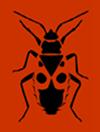Patterns of DNA barcode diversity in butterfly species (Lepidoptera) introduced to the Nearctic
IF 1.2
3区 农林科学
Q2 Agricultural and Biological Sciences
引用次数: 2
Abstract
. One of the main consequences of globalization is the intensi fi cation of biological introductions. Because of their negative impact on environments, the early detection and monitoring of introduced species through molecular approaches is gaining increased uptake. This study assembles 2,278 DNA barcode records to examine contemporary patterns of sequence variation in mitochondrial cytochrome c oxidase I (COI) in fi ve butter fl y species introduced to the Nearctic, with a focus on Pieris rapae Linnaeus (Lepidoptera: Pieridae) and Thymelicus lineola Ochsenheimer (Lepidoptera: Hesperiidae). Parameters of genetic diversity were low (i.e., h < 0.606, π < 0.0039) for Nearctic populations of all analyzed species. Those of P. rapae and T. lineola showed marked genetic differentiation from their source populations in the Palearctic. Haplotype distributions in their Nearctic populations exposed a starburst pattern with a few common haplotypes known from Palearctic, and infrequent haplotypes diverging from them at only one or two nucleotide sites. Some uncommon haplotypes were only found in the Nearctic suggesting they originated after invasion, while others also occur in the Palearctic. This study provides an example of genetic paradox of invasion, where species often rapidly expand their distribution and become dominant in the new habitat despite their depleted levels of sequence variation.引入新北极地区的鳞翅目蝴蝶物种DNA条形码多样性模式
全球化的主要后果之一是生物引进的密集化。由于它们对环境的负面影响,通过分子方法对引入物种的早期检测和监测正在获得越来越多的吸收。本研究收集了2278份DNA条形码记录,以检查引入近北界的五种黄油品种的线粒体细胞色素c氧化酶I(COI)的当代序列变化模式,重点研究了菜粉蝶(鳞翅目:粉蝶科)和线叶百里香(鳞翅目的:Hesperidae)。所有分析物种的近北种群的遗传多样性参数均较低(即h<0.606,π<0.0039)。雷帕霉素和利奈氏T.lineola与它们在北北极的来源种群表现出显著的遗传分化。单倍型在其近北种群中的分布暴露出一种星暴模式,其中一些常见的单倍型已知于北北极,很少有单倍型仅在一个或两个核苷酸位点与它们不同。一些不常见的单倍型仅在近北极地区发现,表明它们起源于入侵后,而其他单倍型也出现在北北极地区。这项研究提供了一个入侵遗传悖论的例子,尽管物种的序列变异水平已经耗尽,但它们往往会迅速扩大分布,并在新的栖息地中占据主导地位。
本文章由计算机程序翻译,如有差异,请以英文原文为准。
求助全文
约1分钟内获得全文
求助全文
来源期刊
CiteScore
2.30
自引率
7.70%
发文量
43
审稿时长
6-12 weeks
期刊介绍:
EJE publishes original articles, reviews and points of view on all aspects of entomology. There are no restrictions on geographic region or taxon (Myriapoda, Chelicerata and terrestrial Crustacea included). Comprehensive studies and comparative/experimental approaches are preferred and the following types of manuscripts will usually be declined:
- Descriptive alpha-taxonomic studies unless the paper is markedly comprehensive/revisional taxonomically or regionally, and/or significantly improves our knowledge of comparative morphology, relationships or biogeography of the higher taxon concerned;
- Other purely or predominantly descriptive or enumerative papers [such as (ultra)structural and functional details, life tables, host records, distributional records and faunistic surveys, compiled checklists, etc.] unless they are exceptionally comprehensive or concern data or taxa of particular entomological (e.g., phylogenetic) interest;
- Papers evaluating the effect of chemicals (including pesticides, plant extracts, attractants or repellents, etc.), irradiation, pathogens, or dealing with other data of predominantly agro-economic impact without general entomological relevance.

 求助内容:
求助内容: 应助结果提醒方式:
应助结果提醒方式:


